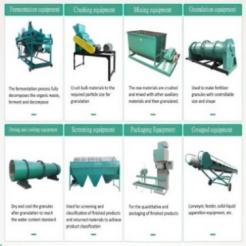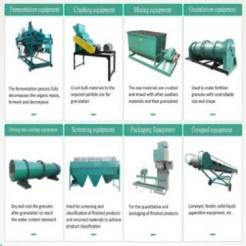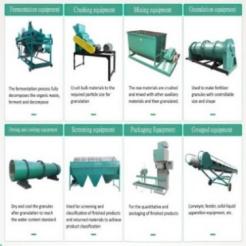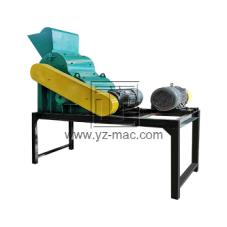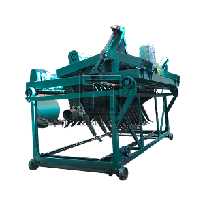Compost turning machine
A compost turning machine. By mechanically turning and mixing the compost pile, a compost turning machine promotes aeration, moisture distribution, and microbial activity, resulting in faster and more efficient composting.
Types of Compost Turning Machines:
Drum Compost Turners:
Drum compost turners consist of a large rotating drum with paddles or blades. They are ideal for medium to large-scale composting operations. As the drum rotates, the paddles or blades lift and tumble the compost, providing aeration and mixing. Drum compost turners are known for their high processing capacity and ability to handle a wide range of composting materials.
Backhoe Compost Turners:
Backhoe compost turners utilize a backhoe or excavator-like attachment to turn and mix the compost. They are suitable for large-scale composting operations and are particularly effective in handling heavy or dense compost piles. Backhoe compost turners offer high maneuverability and can turn large volumes of compost quickly.
Crawler Compost Turners:
Crawler compost turners feature a set of large, rotating drums mounted on a crawler track system. They are highly versatile and can navigate rough or uneven terrain with ease. Crawler compost turners are often used in outdoor composting facilities, allowing for efficient turning and mixing of compost piles over a wide area.
Working Principle of Compost Turning Machines:
Compost turning machines work by mechanically agitating the compost pile, ensuring proper aeration and mixing. As the machine moves along the compost pile, it lifts and tumbles the materials, allowing oxygen to reach different parts of the pile and promoting the breakdown of organic matter. This process creates an optimal environment for microbial activity, leading to faster decomposition and the production of high-quality compost.
Applications of Compost Turning Machines:
Large-scale Composting Facilities:
Compost turning machines are widely used in large-scale composting facilities, such as municipal composting sites and commercial composting operations. They enable efficient compost pile management by ensuring regular turning and mixing, accelerating the decomposition process, and producing large quantities of high-quality compost for various applications.
Agricultural and Farming Operations:
Compost turning machines are valuable tools in agricultural and farming operations. They are used to manage crop residues, manure, and other organic materials, converting them into nutrient-rich compost. Farmers can use the compost to improve soil fertility, enhance nutrient cycling, and promote sustainable agriculture practices.
Landscaping and Horticulture:
Compost turning machines play a vital role in the landscaping and horticulture industry. They are used to produce high-quality compost for soil amendment, turf management, and plant cultivation. Compost produced with the help of turning machines enhances soil structure, improves moisture retention, and provides essential nutrients for healthy plant growth.
Waste Management and Recycling:
Compost turning machines are also employed in waste management and recycling operations. They assist in converting organic waste, such as food waste or yard trimmings, into valuable compost, diverting waste from landfills and promoting environmental sustainability. These machines enable efficient processing of organic waste, reducing its volume and transforming it into a valuable resource.
Conclusion:
Compost turning machines are essential tools in enhancing composting efficiency by mechanically turning and mixing organic waste materials. With various types available, including drum turners, backhoe turners, and crawler turners, these machines offer versatility and high processing capacities. By incorporating a compost turning machine into your composting process, you can achieve faster decomposition, improve compost quality, and contribute to sustainable waste management practices.



